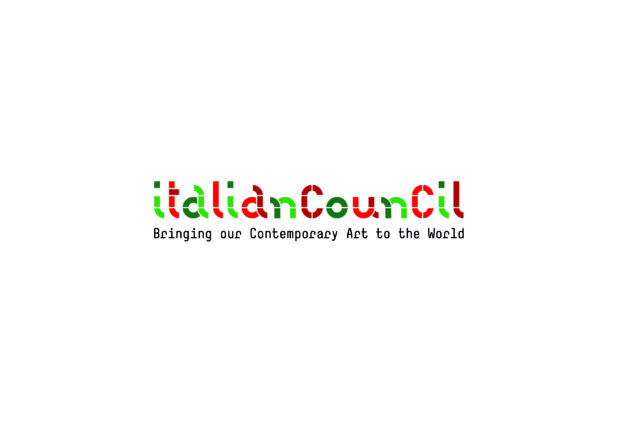For an Olfactory Bio-politics, is the first of two parts of the third appointment with “Eternal Body. Human senses as a laboratory of power, between ecological crises and transhumanism”, curated by Elena Abbiatici. This rearch has been organised thanks to the support of the Italian Council (IX edition 2020), an international programme promoting Italian art under the auspices of the Directorate-General for Contemporary Creativity of the Ministry for Cultural Heritage and Activities and for Tourism.
Not much attention is given to it, but the amount of information our olfactory system receives, together with our respiratory system, clearly linked to it, determines the quality of our health, our mood, our memory and our cultural and political choices.
Throughout history, the sense of smell has gradually lost its function as the sense organ on which survival and existence depend, like a continuous cycle connecting one dimension with the next, and has been limited to a function of either pleasure or disgust. From Aristotle to Kant, there has only been an aesthetic devaluation of the sense of smell, right up to physiologists who considered the nose to be a simple evolutionary leftover.
From Duchamp through Land Art, Fluxus and Arte Povera to several contemporary art practices, the political sense of smell and olfactory censorship have begun to be reconsidered.
The first great provocateur in recent history was Piero Manzoni, who through a work of clear olfactory evocation succeeded in sparking critical and reflective ideas about society. With a highly subtle operation, both banal and elevated, corporeal and mystical, Merda d’artista[1] demolished the system of evaluating and recognising what is art from what is not, satirising the consumerist model established in the 1960s. Merda d’artista challenges the olfactory respectability of modern society and replaces bourgeois clichés with life in its entirety, between inalienable physiology and the transcendent power of thought. Olfactory art has an unparalleled transcendental scope: it rejects the notion of permanence that has oriented not only curatorship but also the market, and reverses the conventional oculocentric tendency to relegate smell to the sensory background.
By restoring the real biopolitical value of smell, Peter De Cupere accomplishes, through a grafting of odours, an important, intangible revelation of many social and civil features. For the 12th Havana Biennale De Cupere presented the installation Smell of a Stranger[2].
The work pokes fun, in an ironic way, at Cuba’s openness to free trade, travel and commerce with the United States. Working with perfumes produced by the IFF (International Flavors & Fragrances), De Cupere genetically modified nine Cuban flowers and plants to emit the odours of American dollars, blood, semen, the vagina, dead bodies and gunpowder. These odours are associated with industrial food production, sex tourism, labour exploitation, death and military violence. The artist overturns the expectations that visitors may have when confronted with installations composed of flowers and plants by generating feelings of olfactory disgust. The smell takes on a political significance: aggressive and repulsive. It simulates the toxicity of certain political and diplomatic choices and the risks of Cuba’s possible political domination by the United States. Peter’s entire artistic practice continually shifts from denouncing present or past conditions through olfactory stimulation.
In a skillful operation to overturn and interweave economics and smuggling, in 2020 at the height of the global pandemic, Coltrane McDowell, a Canadian artist and filmmaker, helped build a campaign for smuggled perfumes in Nairobi. He collaborated with the luxury rose-growing company Tambuzi to take over one of the country’s largest illegal economic agents, the illegal alcohol distillation industry.
Europe was also a major importer of flowers from Kenya before the pandemic. With The Scent of Naiorbi: An Olfactory Biopolitics (nomination Ars Electronica Starts Prize 2021), part of a video trilogy about Nairobi, the artist wanted to reveal Kenya’s relationship of dependence and exploitation, hence the whole of Africa, by European countries and create new economic models. By distilling the essential oil of Tambuzi roses, using local distillation methods, and actually starting an (illegal) perfume industry production, the huge economic losses caused by the pandemic were alleviated.
[1] https://www.merdadartista.org/
[2] https://vimeo.com/150387583
…. to be continued….
images and video: (cover 1) Coltrane McDowell, «TheScent of Economy Loss», 2020 (2) Peter the Cupere, «El Aroma de Un Desconocido / The Smell of a Stranger», video documentation of the installation at the Havana Biennial (2015), project selected by Director Jorge Fernandez, curated by Sara Alonso Gómez (3) Coltrane McDowell, The Scent of Nairoby. An Olfactory Biopolitics, video – visual essay examining the role of olfaction in urban environments.
Previous articles:
E.G. Abbiatici, Right Under Your Nose, 03.03.3021
E.g. Abbiatici, Exellent (artificial) noses, Arshake, 04.05.2021
Partner of the project: Arshake, FIM, Filosofia in Movimento-Rome, Walkin studios-Bangalore, Re: Humanism, Unità di ricerca Tecnoculture – Università Orientale – Naples GAD Giudecca Art District-Venezia, Arebyte – London, Sciami – Rome. “Eternal Body. Human senses as a laboratory of power, between ecological crises and transhumanism” is supported by the Italian Council (9th Edition, 2020), program to promote Italian contemporary art in the world by the Directorate-General for Contemporary Creativity of the Italian Ministry of Culture”.











































